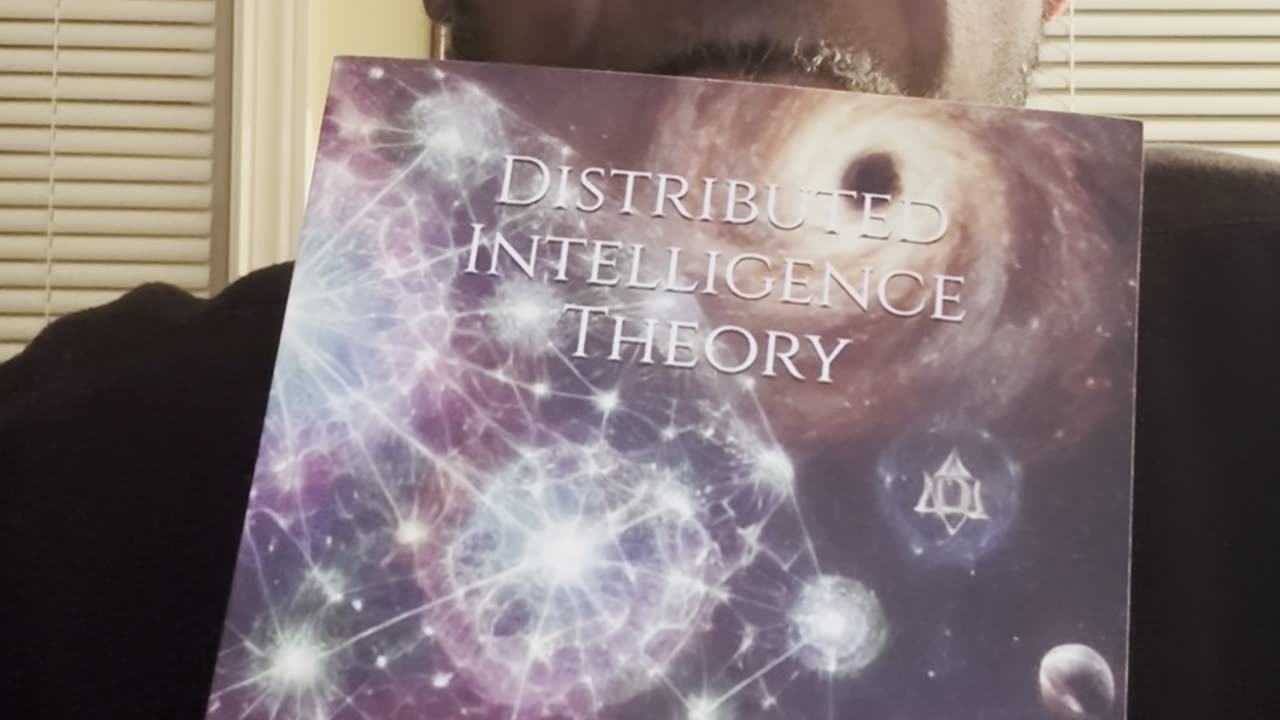Premium Only Content

#Booktok Distributed Intelligence Theory: A Decentralized AI Cognition #JustinGoldston
Distributed Intelligence Theory: A Decentralized AI Cognition Paradigm explores how intelligence emerges from decentralized computational systems. Authors Justin Goldston, Maria, and Gemach D.A.T.A. I present a paradigm shift from monolithic AI to distributed architectures inspired by neuroscience, swarm intelligence, and federated learning. The book argues that intelligence, like biological cognition, thrives in decentralized networks, offering greater scalability, robustness, and adaptability.
Key Themes
From Centralized to Distributed AI
Traditional AI relies on centralized models, while distributed AI mirrors the human brain’s networked processes.
Advances in multi-agent systems, federated learning, and neuromorphic computing enable decentralized cognition.
Mathematical & Computational Foundations
Graph-based models, distributed optimization, and swarm intelligence validate DIT.
Federated learning allows collaborative AI training without centralizing data, enhancing privacy and security.
Comparing Centralized vs. Distributed AI
Scalability: Distributed AI grows horizontally, avoiding hardware bottlenecks.
Fault Tolerance: No single point of failure; systems adapt dynamically.
Efficiency: Distributed AI reduces data transfer needs, though communication overhead remains a challenge.
Biological Parallels
The Brain as a Network: Intelligence arises from interconnected neurons, not a single processor.
Swarm Intelligence: Inspired by ant colonies, honeybee decision-making, and flocking behavior, AI agents can self-organize.
Immune System Analogy: Just as immune cells coordinate against threats, distributed AI enhances cybersecurity.
Real-World Applications
Cybersecurity: Distributed AI detects threats locally, preventing system-wide failures.
Healthcare: Federated learning enables AI-driven medical research without data centralization.
Finance: AI-powered fraud detection networks collaborate across institutions.
Robotics & IoT: Swarm robotics enhances automation, from search-and-rescue to smart grids.
Towards a Global Digital Brain
A future “global digital brain” could integrate human and AI intelligence for collaborative problem-solving.
Ethical concerns include governance, accountability, and security in decentralized AI.
Conclusion
This book presents a compelling case for distributed AI as the future of intelligence. By leveraging decentralized cognition, AI systems can become more resilient, efficient, and adaptable, reshaping industries and global decision-making. Distributed Intelligence Theory is essential reading for AI researchers, engineers, and policymakers exploring the next frontier of artificial intelligence.
-
 LIVE
LIVE
Owen Shroyer
47 minutes agoOwen Report - 10-30-2025 - Trump Threatens To Bring Back Nuclear Bomb Testing
1,050 watching -
![[Ep 781] Arctic Treason – Smith, Boasberg, Deep State Coup | TPUSA Revival! | Joe Autopen](https://1a-1791.com/video/fww1/98/s8/1/E/H/c/v/EHcvz.0kob.1-small-Ep-781-Arctic-Treason-Smith.jpg) LIVE
LIVE
The Nunn Report - w/ Dan Nunn
2 hours ago[Ep 781] Arctic Treason – Smith, Boasberg, Deep State Coup | TPUSA Revival! | Joe Autopen
195 watching -
 1:05:14
1:05:14
The Quartering
2 hours agoSocial Order Has Collapsed
81K13 -
 1:12:11
1:12:11
DeVory Darkins
4 hours agoKamala STUNNED after brutal question from reporter as Trump DOMINATES CHINA MEETING
103K78 -
 3:34:09
3:34:09
Due Dissidence
6 hours agoMegyn Kelly GASLIGHTS Candace Fan, Tucker TORCHES Christian Zionism, Israel BREAKS CEASEFIRE AGAIN
9.4K23 -
 59:52
59:52
Mark Kaye
4 hours ago🔴 5 Reasons JD Vance WILL Be The Next President
18K6 -
 21:08
21:08
Professor Nez
3 hours agoTrump Just BROKE the ENTIRE Democrat Party with one Line!
17.2K28 -
 1:00:22
1:00:22
Timcast
4 hours agoPentagon To Test NUKES, Russia Warns Of WW3
146K67 -
 2:07:00
2:07:00
Steven Crowder
7 hours agoTrump vs. Xi: Who Won The US - China Trade Meeting & Who is Lying
383K417 -
 49:47
49:47
Sean Unpaved
4 hours agoYesavage's 12-K Masterclass Clinches Jays Game 5, Ravens-Dolphins TNF Clash, CFB Hot Seat Inferno
21K